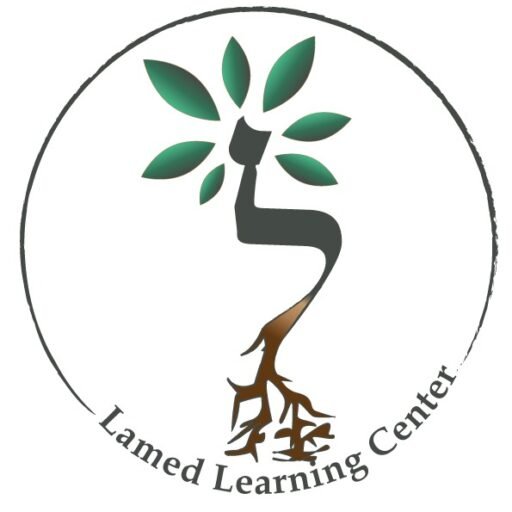
All of us are called to be leaders in some capacity. Many of us reading this are parents. As parents we are leaders of our families. It is up to us to be models for our children. By showing our children how we grow in our 8F’s: Faith, Family, Freedom, Finances, Friendship, Fitness, Fun, and Following, we not only influence them, but we also influence future generations. The challenge as a parent is to recognize that each of our children has their own set of gifts.
My dad gives a weekly shiur on Tuesday nights via Zoom. If you’re interested in joining, please message me for the link! In our discussion this past Tuesday, he mentioned a study that he found in the Journal of Marriage and Family from a few years ago. It shows that 70% of mothers who participated in the survey have a favorite child. How can that be? What is the cost of parental favoritism?
Did your sister or brother always get better presents than you? Did your baby brother or sister get all of the attention? These are examples of favoritism. Parental favoritism is when one or both parents display consistent favoritism toward one child over another. It can include more time spent together, less discipline, and more privileges. As a parent, we usually try to remain neutral and treat all of our children equally. But that task is a lot harder than it sounds.
Rabbi Breitowitz says, in his weekly shiur, that when raising a child, we must remove our blockages so that we can raise our children according to their strengths. We cannot raise our children the same way. It’s important for us to raise them in a way that is best for them. As the saying goes “train a child according to his way; even when he grows old, he will not depart from it” (Proverbs 22:6).
חֲנֹ֣ךְ לַ֭נַּעַר עַל־פִּ֣י דַרְכּ֑וֹ גַּ֥ם כִּי־יַ֝זְקִ֗ין לֹֽא־יָס֥וּר מִמֶּֽנָּה
In the beginning of Parashat Toldot, Yitzchak prays that Rivkah will become pregnant, and that prayer is answered. Not only is she pregnant with one baby, but she’s pregnant with twin boys. But things are not so simple. The two boys are quarreling within her. G-d tells her that there are two nations within. One shall be mightier than the other. The older shall serve the younger (Bereishit 25:22-23).
וַיִּתְרֹֽצְצ֤וּ הַבָּנִים֙ בְּקִרְבָּ֔הּ וַתֹּ֣אמֶר אִם־כֵּ֔ן לָ֥מָּה זֶּ֖ה אָנֹ֑כִי וַתֵּ֖לֶךְ לִדְרֹ֥שׁ אֶת־יְהֹוָֽה
וַיֹּ֨אמֶר יְהֹוָ֜ה לָ֗הּ שְׁנֵ֤י (גיים)[גוֹיִם֙]בְּבִטְנֵ֔ךְ וּשְׁנֵ֣י לְאֻמִּ֔ים מִמֵּעַ֖יִךְ יִפָּרֵ֑דוּ וּלְאֹם֙ מִלְאֹ֣ם יֶֽאֱמָ֔ץ וְרַ֖ב יַעֲבֹ֥ד צָעִֽיר
Rabbi Sacks notes that the Hebrew וְרַ֖ב יַעֲבֹ֥ד צָעִֽיר in ambiguous. It may mean, “The elder will serve the younger,” but it may also mean, “The younger will serve the elder.” It was what the Torah calls a chiddah (Numbers 12:8), that is, an opaque, deliberately ambiguous communication. It suggested an ongoing conflict between the two sons and their descendants, but not who would win.
Later Yitzchak tells Esau that he will bless him. He asks him to hunt and prepare a meal for him. While he is talking, Rivkah overhears, strategizes, and sets up a plan for Yaakov to receive the blessing instead. She prepares everything, then dresses Yaakov in Esau’s clothes. She covered his hands and neck with the skins of an animal.
When Yitzchak calls for Esau, Yaakov answers. Yitzchak says “the voice is the voice of Yaakov, yet the hands are of Esau (Bereishit 27:22).”
וַיִּגַּ֧שׁ יַעֲקֹ֛ב אֶל־יִצְחָ֥ק אָבִ֖יו וַיְמֻשֵּׁ֑הוּ וַיֹּ֗אמֶר הַקֹּל֙ ק֣וֹל יַעֲקֹ֔ב וְהַיָּדַ֖יִם יְדֵ֥י עֵשָֽׂו
Rabbi Ephraim Mirvis teaches a principle by the Vilna Gaon which says that the words הַקֹּל֙ ק֣וֹל have a special significance. הַקֹּל֙ is missing the Vavֹ” which changes the meaning of the word and is the key to our survival! קֹּל֙ means light (not heavy). The voice is not as loud as it might have been. There is a source of strength in our voice. The more that it is heard, the stronger we are as a nation.
Yitzchak, indeed, loved both of his sons. He prepared two sets of blessings. The first blessing intended for Esau says “May God give you heaven’s dew and earth’s richness – an abundance of grain and new wine”, meaning wealth (Bereishit 27:28-29). The second blessing is a bit different “Your abode shall enjoy the fat of the earth and the dew of heaven above. By the sword you shall live, you shall serve your brother. But when you grow restive, you shall break his yoke from your neck” (Bereishit 27:39-40).
Rav Samson Raphael Hirsch suggests that Yaakov and Esau were raised the same way. Yitzchak wants to give Esau the special blessing in order to rectify it. Rivkah knew that it was too late, and Esau wouldn’t use the blessing for good. Rav Yaakov Kaminetsky says that at times we must go against our nature for things that are done for a higher purpose.
Let’s return to the parenting example. The long-term effects of favoritism are clear. The non-favored child will experience low self-worth, feel rejected, inadequate, and there will be resentment between the siblings. Each of our children has strengths and weaknesses. It is up to us to guide and lead our children according to THEIR way. This is a crucial lesson from Parashat Toldot and also next week’s Parasha Vayeitze.
